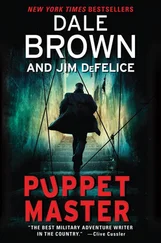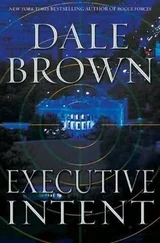“What is the plan now, Colonel?” Khalimov asked.
“A few days to rest while you find Pereira’s safe house,” Zakharov replied. Operational security procedures, instituted by himself—Ruiz was not tactically smart enough to set up such rules—detailed that individual members of GAMMA did not know where the others’ safe houses were located. They used blind phone, letter, and e-mail drops to communicate while in hiding, then set up a different meeting location every time to plan the next operation. “I need to find out what the Americans will do and plan a course of action. What are your thoughts, Captain?”
“Security will be extreme,” Khalimov said. Pavel Khalimov had been an aide-de-camp and tactician for Yegor Zakharov for many years, and he had learned to trust his opinions and expertise implicitly. “Penetrating even local or private security or law-enforcement patrols will be difficult. We may have more success at European or Asian targets, although they will be substantial as well.”
“Our benefactor said the same,” Zakharov said. He paused for a moment, deep in thought. Then: “Very well, we continue as planned. The last time America was attacked within its own borders, it lashed out mostly at terrorists overseas—the nation’s leaders did not have the stomach to combat terrorists on its own soil. It is too politically incorrect, too unpopular with their constituents. They set up a few security measures here and there, mostly in airports and a few docks and border crossings. But Americans are so enamored of personal freedoms, their precious Bill of Rights, that they would rather allow an entire society to be threatened with death or horrible injury by weapons of mass destruction than inconvenience their citizens with more exhaustive searches and investigation. Stupid.”
“Our mission is proceeding as planned,” Khalimov said. “We anticipated the American government instituting severely increased security measures after our first attack—in fact, we were hoping for it. Most of our forces are already in place and waiting for the American people’s patience to run thin.”
“Exactly. When that happens, we will strike the final blow.” Zakharov fell silent for several long moments, then said, “I want the next attack in the United States to make the one in Houston look like a campfire, Pavel,” he said finally. “We will continue our overseas operations as planned—but it will be nothing compared to what will happen in the United States.”
CHAPTER THREE
Cannon Air Force Base, Near Clovis, New Mexico
Four days later
Jason Richter kicked off the rough green wool U.S. Air Force– issue blanket and balsa-wood-like starched sheets. Sunlight was streaming through uncovered windows—not just through the glass, but around the edges of the window itself where the wood and masonry trim was crumbling away. The open barracks was divided into rooms with simple cinder-block walls that had no doors and didn’t even extend all the way to the ceiling; being a field grade officer, he was actually given a cubicle of his own. He was careful to shake his sneakers on the floor to be sure no poisonous spiders or scorpions had crawled inside before he slipped them on to head to the open bay latrine.
“Let’s hit it, Ari,” he said as he passed Ari Vega’s cubicle across the building from his. All of the other cubicles, about thirty of them, were empty. Her cubicle had no doors on it either, but Ari never insisted on separate men’s and women’s facilities—if you couldn’t handle a woman in the lab, the field, or the latrine, she had always said, that wasn’t her problem.
“Shit, J,” Ari murmured, “what time is it?”
“Almost seven-thirty.”
She was still wearing the black fatigue trousers and olive drab T-shirt she had been wearing for the past three days, ever since their demonstration at Andrews Air Force Base. Ari had long, wavy, dark hair, an olive complexion, and a very sexy body, but she always had her hair up, rarely used makeup, and kept her body hidden under bulky clothing; Jason had only seen her with her hair down maybe a handful of times in two years of working closely together. “Seven-thirty? We just hit the rack three hours ago!” Not unexpectedly, things ran late yesterday: the transport planes were delayed by weather and mechanical breakdowns, so they were late getting loaded up in Alexandria, which meant they got in very late to Cannon Air Force Base, the eighty-seven-thousand-acre military installation in eastern New Mexico. To top it off, there were no helpers or offloading equipment to help them at Cannon, so they had to unload the plane themselves by hand. “My brain doesn’t start until eight, man. I’m skipping breakfast. See you later.” Jason was too tired to argue.
The water in the latrine’s shower was ice cold, and when the hot water started, it was as brown as the dirt outside. Jason let it run, hoping it would eventually clear, but he ended up showering under an adjacent head in cold water because it never did. He shaved in cold water, put on the same set of fatigues he wore the day before, brushed the dirt and sand off his boots as best he could, found his fatigue cap, and headed outside.
They were set up in Field Exercise Support Facility Twelve, located about thirty-two kilometers west of Cannon Air Force Base in a restricted area known as Pecos East. Two large rickety-looking steel hangars perpendicular to one another faced a large concrete parking ramp. Long shafts of grass grew through numerous cracks in the tarmac. Obviously the facility had been used recently, but judging by the gang graffiti and empty beer cans they found everywhere they guessed it had not been used for any military purposes. The air was warm and breezy, with thunderstorms already building to the west. The terrain was flat, flat, flat, and Jason could probably count the number of trees he saw on one hand.
Jason found the chow hall, a broken-down-looking place called the Tumbleweed Dining Facility with cracked windows and peeling paint everywhere, but it was closed. He swore to himself and made his way across the dusty curbless street to the front of the center hangar. A steel door that appeared to have been pried open with a crowbar several times bore the familiar sign that read, RESTRICTED MILITARY FACILITY, AUTHORIZED PERSONNEL ONLY, followed by a long paragraph of legalese and finished with, USE OF DEADLY FORCE AUTHORIZED. He pressed a button to an intercom box beside the door, and moments later he heard a buzz and pulled the door open.
“Unit, ten-hut!” he heard. A lone Air Force security guard in desert camouflage fatigues, web belt with sidearm, and black Security Forces beret snapped to attention behind a gray metal desk. A bank of security camera monitors was set up on a desk to his left; a gun locker and radio recharging stand was on the right. “Welcome to Task Force TALON, sir,” the guard said. He was rather short and perhaps a little on the pudgy side, with horn-rimmed glasses strapped to his head with an elastic band, but he seemed professional, enthusiastic, and friendly. “May I see your ID card, please?” Jason fished it out for him. The guard studied it for a moment, took down some information from it, and returned it. “Thank you, sir. I’m Staff Sergeant Doug Moore, in charge of security here at Area Twelve.” He handed Jason a folder. “Inside you’ll find gate codes, your flight line badges, maps of the base, and other information. Is Dr. Vega with you?”
Jason found the flight line badge on a neck strap and put it on—he had a feeling he was going to use it quite often here. “She should be along shortly.”
“Very well, sir.” His look of surprise obviously told Jason that he didn’t know Ariadna was a woman—she liked using her more male-sounding nickname “Ari” so she could see the surprised look on the faces of the men when they discovered she was a woman. “I’ll notify the rest of the staff that you’ve arrived.”
Читать дальше












